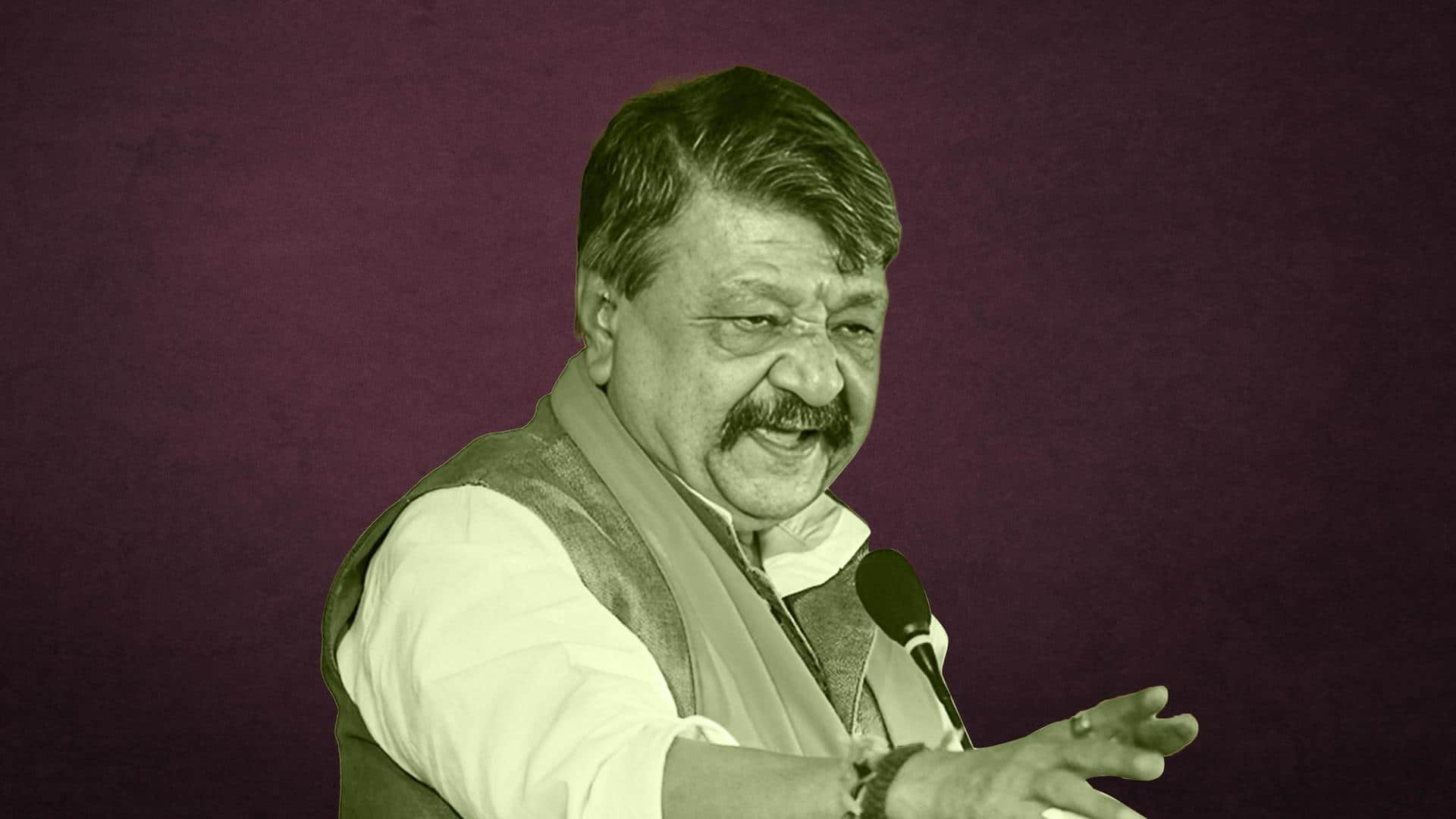
BJP's Kailash Vijayvargiya sparks outrage with 'girls like Shurpanakha' remarks
What's the story
Senior Bharatiya Janata Party (BJP) leader Kailash Vijayvargiya has allegedly compared girls who wear "dirty clothes" to Shurpanakha, who is depicted as a demoness in the ancient Indian epic Ramayana.
Vijayvargiya, who is a BJP general secretary, sparked outrage with his comments made at a religious event organized on Thursday to mark the birth anniversaries of Lord Hanuman and Mahavir in Indore, Madhya Pradesh.
Context
Why does this story matter?
The BJP leader's remarks come amid a debate over a viral video of a woman wearing a bralette and a miniskirt in the Delhi Metro.
Notably, Shurpanakha—sister of demon king Ravana—is an ugly and lusty creature who seeks to seduce Lord Ram and his brother Lakshman, per Ramayana. When they reject her advances, she attacks them, and Lakshman chops off her nose and ears.
Statement
No trace of goddesses in girls wearing dirty clothes: Vijayvargiya
At the event, Vijayvargiya reportedly said, "When I go out at night and see young people intoxicated, I feel like giving them five-seven [slaps] to sober them up."
"And the girls wear such dirty clothes...we think of women as goddesses...there's no trace of that in them. They look like Shurpanakha," he said.
"God has given you a good body, wear nice clothes," Vijayvargiya added.
Reaction
BJP leader's remarks drew sharp criticism
Meanwhile, Vijayvargiya's comments invited sharp reactions from the opposition, especially the Congress.
"BJP leaders humiliate women again and again. It shows their thinking and their attitude," said Congress spokesperson Sangeeta Sharma.
She termed his comparison of girls "objectionable" and sought an apology from the BJP.
Some social media users also slammed Vijayvargiya for being "misogynistic" and indulging in "moral policing."
Twitter Post
Watch: Kailash Vijyavargiya addressing religious function
BJP Leader @KailashOnline says girls dress badly & look like ‘Shurpanakha’. This is a reprehensible & demeaning insult to every woman of this country
— Dr. Shama Mohamed (@drshamamohd) April 8, 2023
Where is @smritiirani now? Does she condone this disgusting statement? Or does she only find her voice to attack @RahulGandhi! pic.twitter.com/hzoxrnZpl1
Information
Vijayvargiya is not new to controversy
Interestingly, the BJP leader is no stranger to controversies. Last month, Vijayvargiya reportedly asserted that after independence and partition, whatever remained of India was a "Hindu Rashtra," which openly defies the country's founding principle of secularism.